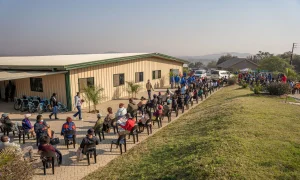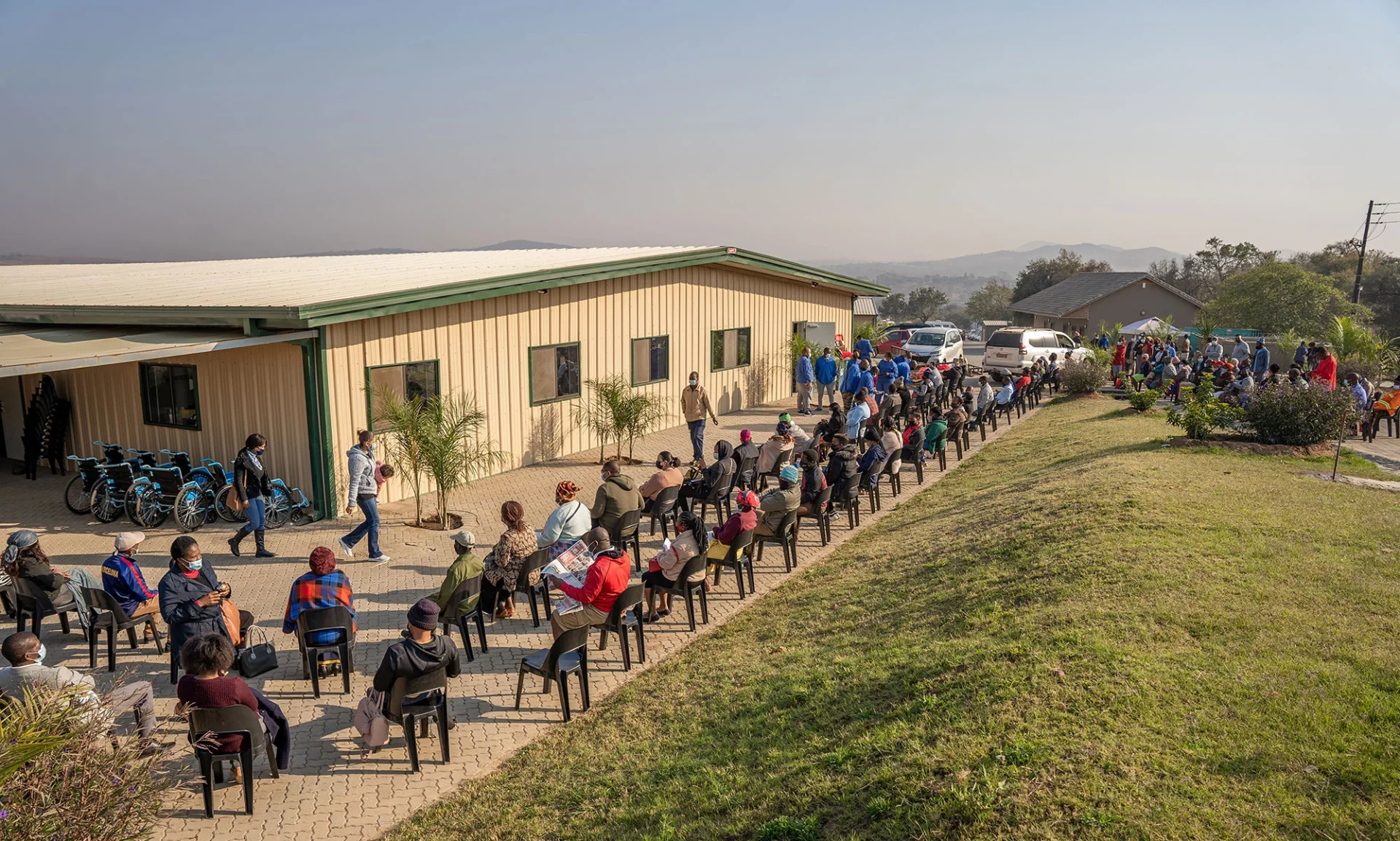By Ncaba Ntshakala
In its third year of operation, The Luke Commission (TLC) oxygen plant has emerged as a cornerstone of Eswatini’s healthcare system, producing over half a billion liters of life-saving medical oxygen.
This was contained in a statement shared by Mandla Kunene who is the Director of Assets and Infrastructure at The Luke Commission.
Established on TLC’s Miracle Campus in Sidvokodvo, the oxygen facility is said to have benefited more than 5,300 oxygen-dependent inpatients and supported over 44,000 oxygen-dependent inpatient nights, which is said to have played a critical role in the nation’s health sector.
Kunene asserted that the oxygen plant was conceived and constructed in response to the urgent need for medical oxygen during the Covid-19 pandemic.
As the virus wreaked havoc across the globe, Eswatini faced severe oxygen shortages, compelling TLC to take decisive action.
ALSO READ: Cancer drugs now available –…
Managed by Kunene, the construction of the plant began in late 2020 and was completed by the first half of 2021.
He expressed that the facility became operational on June 9, 2021, just before the onset of the third wave of Covid-19, which has been said to have marked a significant achievement in Eswatini’s healthcare resilience and independence.

During the pandemic, having a secure and reliable source of medical oxygen was crucial.
“Having a secure source of oxygen during Covid-19 saved thousands of lives, and it continues to save lives every day,” said Kunene.
The oxygen produced by the plant is not only used for Covid-19 patients but also for treating advanced HIV, tuberculosis (TB), snakebites, and other diseases, significantly reducing Eswatini’s reliance on imported oxygen and strengthening its healthcare infrastructure.
Kunene added that the plant, which is the largest of its kind in Africa, features six identical oxygen generation stations that can be adjusted to meet varying demands.
This flexibility ensured that during the peak of the pandemic, TLC could meet unprecedented oxygen needs without rationing, which was vital in lowering the fatality rate.
ALSO READ: Ministry of Health underutilised E86…
Echo VanderWal, Managing Executive Director of TLC, emphasized the plant’s life-saving impact, “The excruciating pain of watching people suffocate drove us to action.
We decided to build an oxygen plant even though it had never happened in Eswatini; we believed that oxygen independence would save the lives of our fathers, mothers, brothers, sisters, and children.”
In the statement, the Director further expressed that the success of the plant is a result of the collaborative efforts of several key entities. It is said that TLC utilized the Luvelo digital ecosystem to estimate oxygen demand and manage operations, ensuring timely maintenance and continuous functionality.
Kunene noted the importance of robust maintenance practices to prevent operational failures, a common issue in similar facilities worldwide.
The oxygen plant has not only been a lifeline during the pandemic but continues to support the nation’s healthcare needs.
It has also been revealed that it plays a vital role in surgeries, neonatal care, and home care oxygen access, contributing to a comprehensive healthcare solution for Eswatini.
The plant’s capacity to produce 2,500 liters of oxygen per minute is sufficient to meet the oxygen cylinder needs of the entire Kingdom during non-pandemic times.
Moreover, it has been shared that the cost of building and operating the plant over the past three years exceeds E90 million.

Kunene stated that such was a result of the generous funding from the Kirsh Foundation, PEPFAR, USAID, UNICEF, FNB, and other private donors which has amounted to nearly E46 million and has been crucial in sustaining the plant.
However, TLC added that they also had to take out loans totaling E20 million from FNB, with significant monthly interest payments.
Despite the financial challenges, TLC has expressed that they have distributed over 450 million liters of oxygen freely to those admitted at Miracle Campus Hospital and more than 10,000 oxygen cylinders (which is over 75 million litres) to public and NGO health institutions at no cost to the Eswatini government.
ALSO READ: Ministry of Health urges vigilance…
Furtehrmore Kunene said that despite these contributions, oxygen cylinders in Eswatini’s public healthcare system are still sourced from international suppliers rather than the locally produced oxygen from TLC.
Acknowledging the efforts of the Minister of Health and Principal Secretary to diversify oxygen production and supply, there health facility stated that there is optimism that local production will eventually be fully integrated into the national healthcare system.
“This would ensure abundant, resilient, and cost-effective medical oxygen supplies, essential for the Kingdom’s health now and in preparation for future pandemics,” reads the statement.
The Luke Commission is a faith-based NGO, which has been instrumental in providing comprehensive healthcare services to underserved populations in Eswatini. With over 1.3 million patient visits and more than 6 million medical services delivered since 2005.


